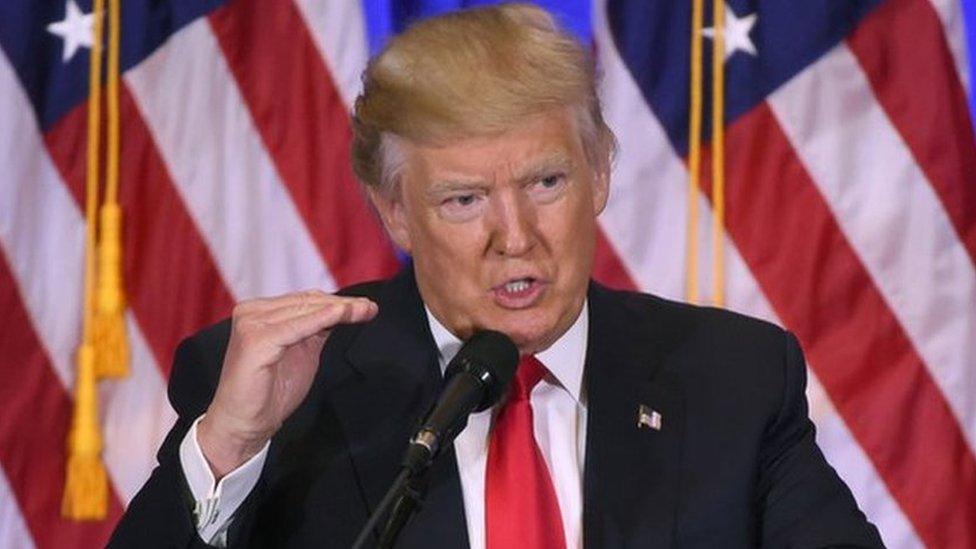Why the UN is wary of the US position on human rights
- Published
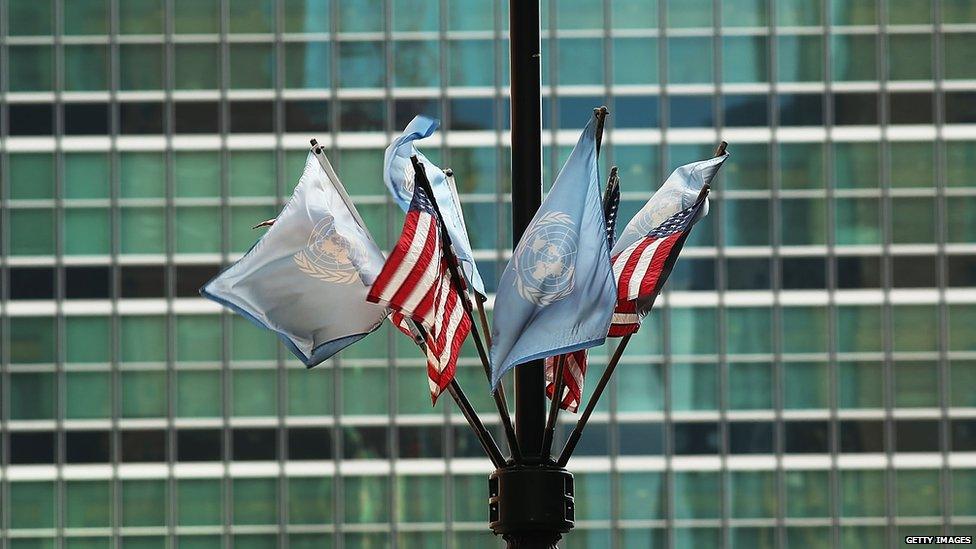
United Nations aid agencies in Geneva were nervous before Donald Trump was elected: his rhetoric on all sorts of key issues, from migrants to torture, was deeply worrying to a community dedicated to upholding what it believes are fundamental human rights.
Once candidate Trump became President Trump, the nervousness increased.
The executive order on immigration seemed, to many aid workers, to betray an almost total lack of understanding and compassion for the world's most vulnerable people.
Now, 100 days in, there is a sense of wariness.
Although that key executive order on immigration may have been stayed by the US courts, there is unease at what may come next.
On 1 May, the UN human rights commissioner, Zeid Raad Al Hussein, warned that he was "watching the US very carefully".
His remarks were made in the context of Donald Trump's "very friendly" conversation with President Duterte of the Philippines, and his invitation to Mr Duterte to visit the White House.
John Fisher, Geneva director of Human Rights Watch (HRW), describes the invitation as an "uncritical embrace" and "entirely inappropriate".
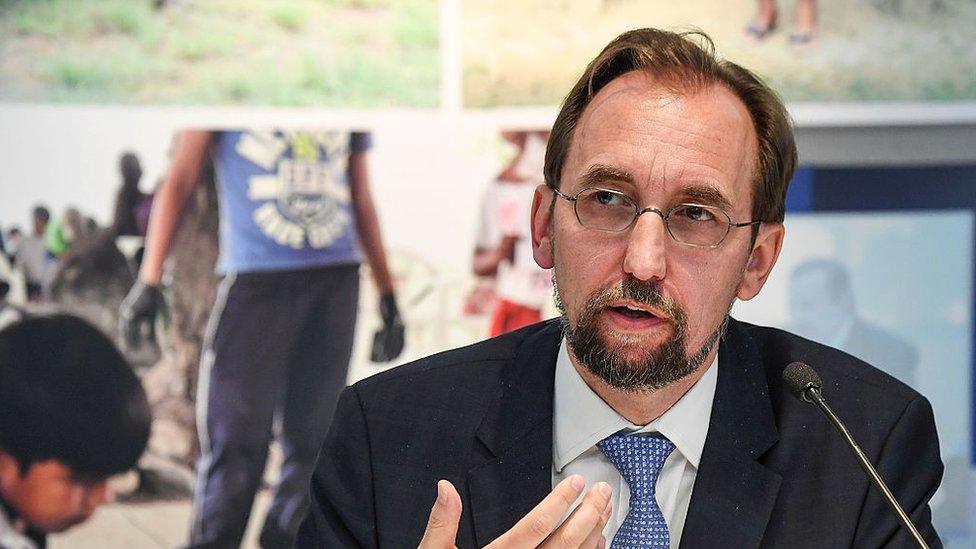
United Nations high commissioner for human rights Zeid Raad Al Hussein
This week, the Philippines is due to be reviewed by the UN Human Rights Council in Geneva.
HRW, which has submitted evidence to the UN review, has described President Duterte's war on drugs as "nothing less than a murderous war on the poor", in which more than 7,000 people have been killed in less than a year in a campaign HRW believes could amount to a crime against humanity.
Human rights commissioner Mr Zeid said he expected a "clear and undiluted" message on human rights from Washington to Manila during any White House visit, and that was what he would be watching for.
But just two days after these comments, US Secretary of State Rex Tillerson seemed to reinforce Geneva's growing suspicion that Washington's commitment to human rights is weakening.
In a long-awaited speech to State Department employees, Mr Tillerson suggested that asking other countries to adopt what he called "American values" might conflict with US national security interests, and the latter must come first.
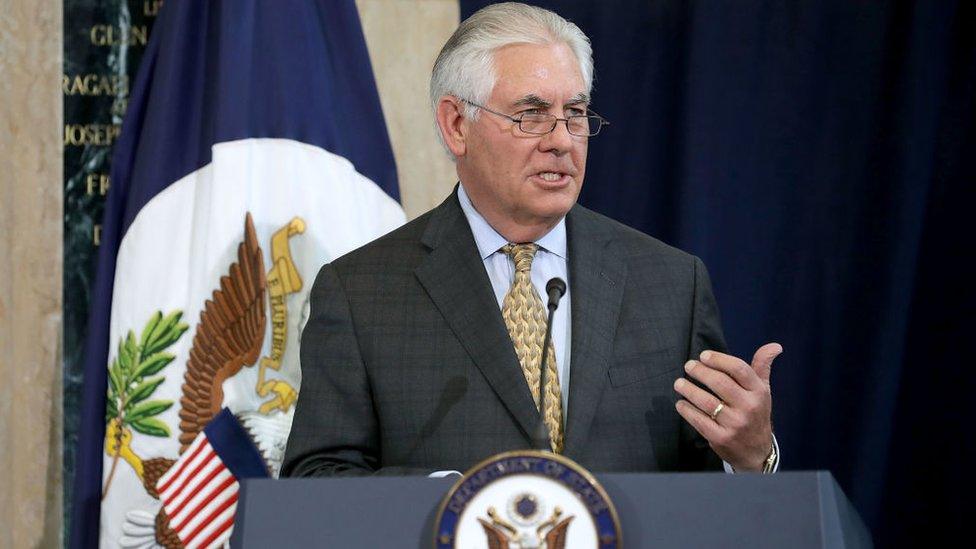
US Secretary of State Rex Tillerson believes that US national security interests must be a priority
The backlash was swift.
Former US ambassador to the UN Samantha Power pointed out something that seems to have been lost on the former oilman Mr Tillerson: human rights are first and foremost universal, and the US agreed, when it signed the Universal Declaration on Human Rights in 1948, not just to accept them as American values, but to uphold them worldwide.
"It was a very disappointing statement [from Mr Tillerson]," said John Fisher, of Human Rights Watch.
"It suggests that human rights are no longer a central plank of US foreign policy."
Others, however, suggest that the only change is that Washington is now publicly preaching what it always practised.
"Historically, the US has always been able to have its cake and eat it," says David Sylvan, professor of international relations at Geneva's Graduate Institute.
"Geopolitical interests come first… the US has always been able to cut deals with people who are fairly thuggish."
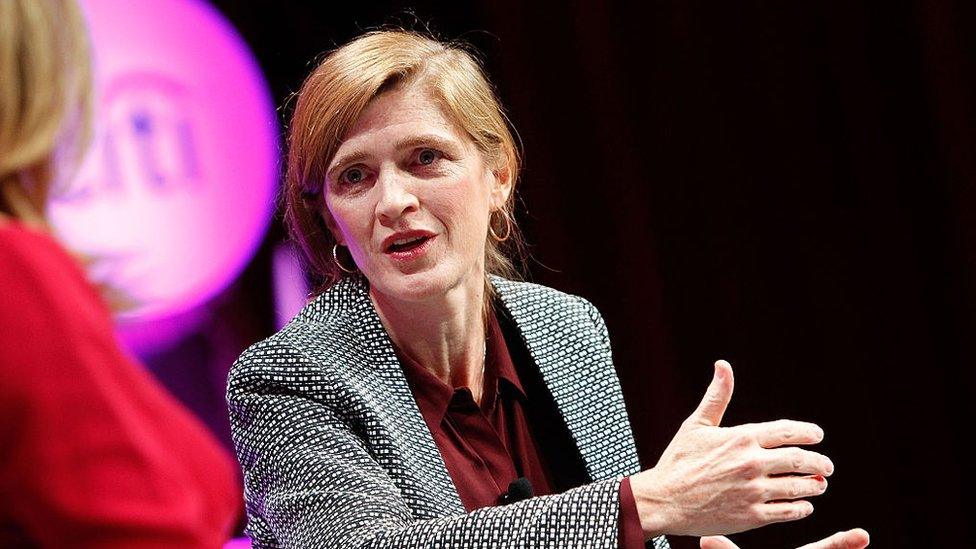
Former UN ambassador Samantha Power has been critical of its current stance on human rights
But even if the change is more language than substance, Washington's approach is causing concern.
"The impact of Trump's speeches on dictators around the world… can't be good," says Robert Roth, director of the Geneva Academy of International Humanitarian Law and Human Rights.
"Obviously it could encourage some states to be even less careful about human rights," says Marco Sassoli, professor of international law at Geneva University.
Added to concern over the effect of the rhetoric from Washington is the more existential one: the US is the biggest financial contributor to many UN agencies, including the Office of Human Rights.
Under President Trump, big cutbacks have been proposed.
So what can the UN, and human rights commissioner Zeid Raad Al Hussein in particular, do to convince Washington that supporting universal human rights is worthwhile?
"Almost nothing," says David Sylvan. "Trump is not bothered about human rights, he doesn't care at all."
But until the cutbacks are actually reality, and so far, as with so many other issues, no concrete proposals on the UN have come out of the Oval Office, the UN community in Geneva tries to remain optimistic, but wary.
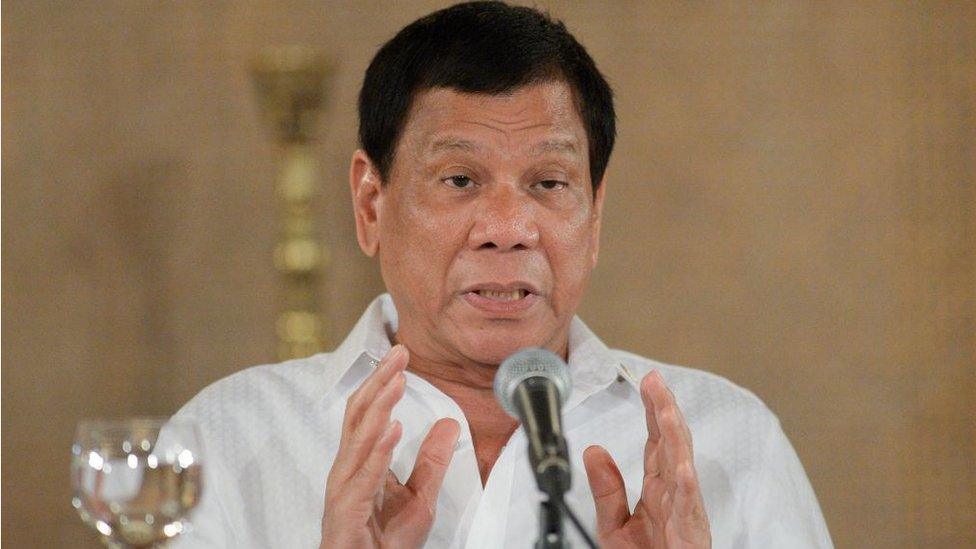
Philippine President Rodrigo Duterte has been invited to the White House
Mr Zeid's comment that he was "watching" the US was, in fact, a good deal more diplomatic than some of his pre-US election speeches, in which he called some political leaders, Donald Trump among them, "demagogues".
He still, apparently, hopes to get an invitation to Washington himself, though it seems it will be after President Duterte's.
If the UN's human rights chief does get into the White House, Robert Roth, of the Geneva Academy, has some advice on strategy.
History shows us, he says, that abusive regimes tend not to last, and that tolerating human rights violations and those who commit them will not, in the long term, help any country's national security.
"It is in the interests of a stable world not to accept major violations of human rights," says Mr Roth.
David Sylvan is more blunt. "Trump doesn't understand the UN and won't until something happens that makes him see it could be useful," he says.
"The way human beings tend to learn is from a disaster.
"Let's hope [President Trump's learning process] isn't a disaster that affects the whole world."
- Published12 January 2017
